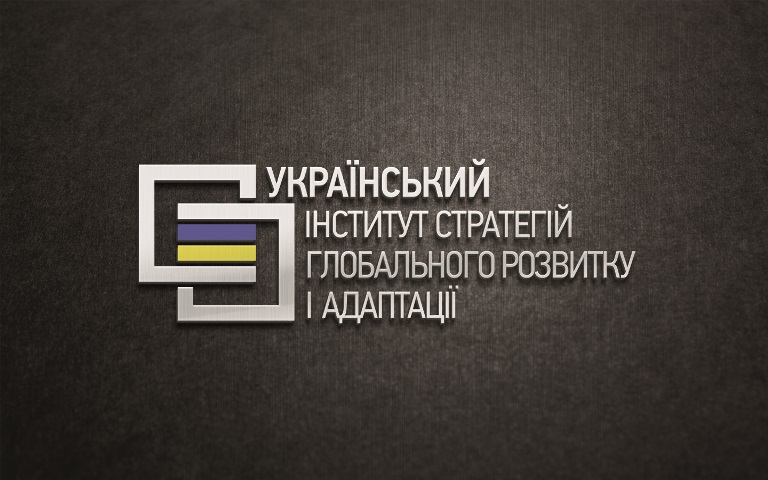On June 3, 2015 a roundtable discussion "Future of the country after the East-Ukrainian conflict" was held on the basis of Zaporizhzhya National University. The roundtable was organized with the assistance of the Ukrainian Institute of strategies of global development and adaptation and Donetsk National University.
The roundtable gathered intellectuals-humanitarians from different cities of Ukraine in order to determine possible state development strategies after the end of the violent phase of the conflict in eastern Ukraine.
Despite the fact that military hostilities continue now and that the population suffers not only from them but also from domination of propaganda, it is already now one may feel shortage of strategies for the future development of the state policy towards the victims of the hostilities, reconciliation of separated families and communities, and so forth. These and other issues were discussed by experts, among whom there were Alexander Belokobylsky, Roman Dodonov, Vladimir Skvorets, Maxim Lepsky, Vladimir Glazunov and other humanitarian scholars.
During discussion, the roundtable participants agreed on several points for further dialogue among intellectuals on the future of Ukraine:
1. Socio-political situation in the East of Ukraine, annexation of Crimea, aggravation of international relations under conditions of hybrid war cause necessity in stepping up of scientific-expert community for the sake of integrity of Ukraine and its development.
2. There is an urgent need to study the experience of disengagement of Georgia and other states from military and economic conflicts, use of proven technologies of overcoming humanitarian and social trauma, namely, adaptation and support of internally displaced persons (IDPs), overcoming PTSD (post-traumatic stress disorder) by servicemen and their families, solving the problem of relatives, universities, etc, separated by the border and the frontline.
3. Formation of scientific-expert movement "University for Peace" within the framework of project of ZNU, KhNU named after Karazin, DNU (Vinnitsa), Sukhumi State University, Caucasus International University with the involvement of counterparts from Poland, USA, Canada, Russia, Estonia, Lithuania, Latvia, Sweden, and the EU institutions as a whole.
4. Acknowledge the following problems to strategically significant:
- Formation of the project (draft) of the post-conflict future of Ukraine;
- Overcoming manifestations of discrimination of citizens of Ukraine political-wise; as a definitive goal – to establish integrity of the State of Ukraine;
- Determination of ways of resolving the armed conflict in Donetsk and Lugansk regions;
- Identification of the most likely scenarios of postwar Ukraine and overcoming of social and military trauma of the Ukrainian people;
- Analysis of experience of overcoming negative effects of phenomena of local military and socio-political conflicts: problems of refugees, prisoners of war, post-traumatic syndromes, etc., on the example of Georgia, Transnistria and limitrophe collisions;
- Determination of external and internal threats to the integrity of Ukraine as a result of manifestations of separatism, terrorism, oligarchization and okhlokratization that are accompanied by strengthening of latent impact on social processes in the Ukrainian society;
5. Determine positive experience of initiated discussion of the problem of East Ukrainian conflict, which has been reflected in the collection of scientific works "The East Ukrainian conflict in the context of global transformations"; continue the practice of preparation of collections of works in certain directions and for certain challenges in overcoming negative effects of the East Ukrainian conflict and a hybrid confrontation of global players in Ukraine.
6. Create permanently functioning online resources for discussion of pressing problems by the scientific-expert society, as well as groups in social networks Facebook and Vkontakte. One of the options of continuation of this point would be a joint initiative "Ukrainian consensus".
7. Determine periodicity of full-time and part-time (online) communication of the expert community on specific topics; adopt proposals and topics for discussion for the next academic year before September 1, 2015 and to make appropriate schedule of work of the scientific-expert community.
Participants of the round table
1. Belokobylsky Alexander, Doctor of Philosophy, Professor, Professor of the Philosophy Department of the Donetsk National University, director of Kiev branch of the Ukrainian Institute of strategies of global development and adaptation
2. Glazunov Vladimir, Doctor of Philosophy, Associate Professor, Professor of the Sociology Department of Zaporizhzhya National University
3. Dodonov Roman, Doctor of Philosophy, Professor, Acting Head of the Philosophy Department of Donetsk National University, expert of the Ukrainian Institute of strategies of global development and adaptation
4. Dodonova Vera, Doctor of Philosophy, Associate Professor, Professor of the Philosophy Department of Donetsk National University, expert of the Ukrainian Institute of strategies of global development and adaptation
5. Kobalia Dmitry, Candidate of Historical Sciences, Head of the National Reserve "Khortytsya", expert of the Ukrainian Institute of strategies of global development and adaptation
6. Lepsky Maxim, Doctor of Philosophy, Professor, Professor of the Sociology Department, Dean of the Faculty of Sociology and Administration of Zaporizhzhya National University
7. Skvorets Vladimir, Doctor of Philosophy, Associate Professor, Acting Head of the Sociology Department of Zaporizhzhya National University, expert of the Ukrainian Institute of strategies of global development and adaptation
8. Fadeev Vladimir, PhD, Head of Sector of the Institute of Philosophy named after H.Skovoroda of the National Academy of Sciences of Ukraine, expert of the Ukrainian Institute of strategies of global development and adaptation
9. Khalikov Ruslan, PhD, Academic Secretary of the Ukrainian Institute of strategies of global development and adaptation
10. Tsokur Evgenii, Doctor of Political Sciences, Associate Professor, Head of the Department of Political Science of Zaporizhzhya National University.

